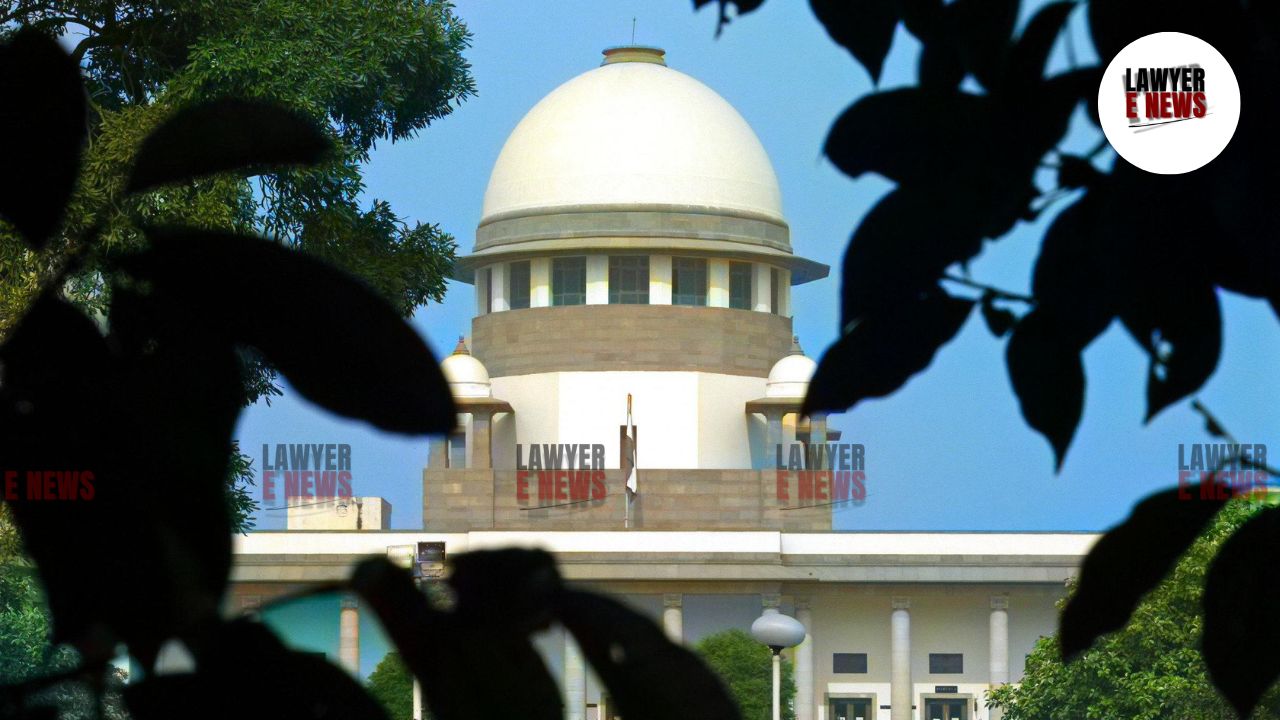-
by Admin
15 February 2026 5:35 AM



Supreme Court of India dismissed a writ petition challenging recovery proceedings initiated under the Securitisation and Reconstruction of Financial Assets and Enforcement of Security Interest Act, 2002 (SARFAESI Act) and the Insolvency and Bankruptcy Code, 2016 (IBC). The petition also sought the constitutional validity of various provisions affecting MSMEs. The Court, however, ruled that statutory frameworks provide adequate remedies and such disputes must be addressed before specialized forums like Debt Recovery Tribunals (DRTs) or National Company Law Tribunals (NCLTs).
The bench, comprising Justice Hrishikesh Roy and Justice S.V.N. Bhatti, observed that the petitioners failed to establish grounds for invoking the Court's jurisdiction under Article 32 of the Constitution.
The petitioners approached the Supreme Court seeking multiple reliefs, including:
Implementation of MSME Notification (29.05.2015): The petitioners alleged that the Reserve Bank of India (RBI) and the Central Government failed to enforce provisions protecting MSMEs from being classified as Non-Performing Assets (NPAs).
Challenge to Statutory Provisions: The petition challenged the constitutionality of Sections 13 of the SARFAESI Act, Sections 7, 9, 10 of the IBC, and Sections 34 of the RDB Act, among others, claiming these provisions are one-sided and unfair to borrowers.
Jurisdiction of Civil Courts: The petitioners argued that barring civil courts from hearing cases under the SARFAESI Act, IBC, and RDB Act is unconstitutional in the absence of a specialized forum for MSME disputes.
Quashing of Recovery Proceedings: The petition sought to quash SARFAESI notices issued by Union Bank of India for recovery against the petitioners.
The Supreme Court held that a writ petition under Article 32 is not maintainable for challenging recovery proceedings initiated under the SARFAESI Act and IBC.
Court’s Observation: "Statutory frameworks under SARFAESI, IBC, and RDB Act provide specialized mechanisms for dispute resolution. Invoking the writ jurisdiction of this Court without exhausting such remedies is unwarranted."
The Court emphasized that Debt Recovery Tribunals (DRTs) and NCLTs are the appropriate forums to address grievances arising under these statutes. It clarified that writ jurisdiction under Article 32 is not an alternative to statutory remedies.
The petitioners argued that the MSME Notification (29.05.2015), which protects MSMEs from being classified as NPAs, was not implemented by banks and financial institutions. However, the Court dismissed this claim, observing that the petitioners failed to demonstrate any breach of statutory duty by the RBI or the Central Government.
Court’s Finding: "The petitioners have not provided sufficient grounds to justify interference by this Court. Implementation gaps, if any, do not warrant constitutional intervention under Article 32."
The petitioners challenged the constitutionality of Sections 13 of the SARFAESI Act, Sections 7, 9, 10 of the IBC, and Sections 34 of the RDB Act, claiming these provisions were one-sided and favored banks over borrowers.
The Supreme Court dismissed these arguments, stating: "The statutory frameworks under SARFAESI, IBC, and RDB Act are designed to balance the interests of creditors and borrowers while providing alternative dispute resolution mechanisms. Challenges to these provisions must be raised before the appropriate statutory forums."
The Court reiterated that it is not the role of the judiciary to interfere with legislatively designed recovery mechanisms unless there is a clear violation of constitutional principles.
The petitioners contended that barring civil courts from hearing disputes under the SARFAESI Act, IBC, and RDB Act is unconstitutional, particularly for MSME borrowers. They argued that the MSMED Act does not create a specialized forum, leaving MSMEs without recourse to justice.
Court’s Response: "Alternative forums under the SARFAESI Act, IBC, and RDB Act provide adequate remedies for borrowers, including MSMEs. The bar on civil court jurisdiction is a deliberate legislative measure to ensure the expeditious resolution of disputes."
The Court further noted that MSMEs are not exempt from these specialized mechanisms and must pursue their remedies within the statutory frameworks.
The Supreme Court dismissed the writ petition, stating:
"We see no reason to entertain the Writ Petition filed under Article 32 containing the above prayers. The petitioners must approach the appropriate statutory forums to resolve their grievances."
Pending applications, if any, were also disposed of.
This judgment reaffirms the principle that specialized forums established under statutory frameworks like the SARFAESI Act and IBC are the appropriate venues for resolving disputes related to debt recovery and insolvency. While the Court recognized the importance of MSMEs in the economic framework, it emphasized that constitutional remedies cannot be invoked to bypass legislatively mandated procedures.
Date of decision : January 3, 2025
